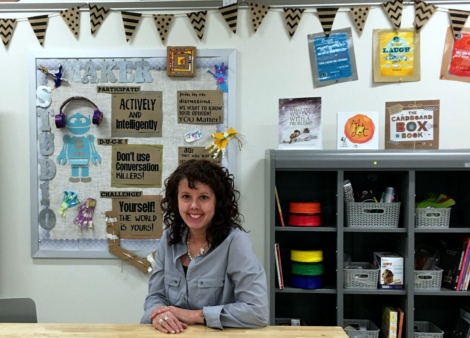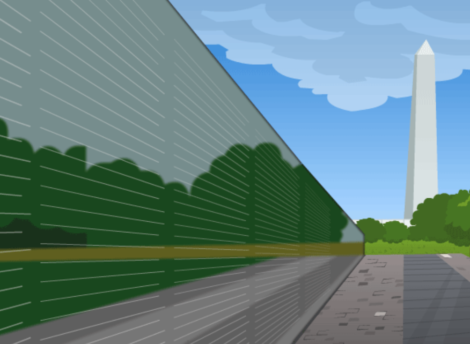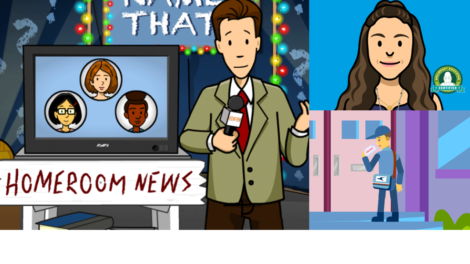
Differentiation with CBE of the Month Mike Jones
Posted by Jessica Millstone on
We’re excited to introduce you to November’s Certified BrainPOP Educator of the Month, Mike Jones! Mike works at Illinois State University’s K-8 Lab School teaching 7/8 science and working with teacher candidates. He’s a power-user of BrainPOP across the curriculum, and has helped shape our products over the course of many year – make sure to check out his wish list of new features at the end of the post. Here is Mike, in his own words!
What grade(s) do you teach? Subject area?
I’m the 7/8 grade science teacher at Illinois State University’s Lab School, Thomas Metcalf Elementary. Metcalf is a laboratory school that works closely with ISU’s College of Education to host clinical observations, participate in research and provide professional development. We have a blended science curriculum which focuses greatly on STEM.
How long have you been teaching?
This is my 20th year (that’s the china or platinum anniversary right?). I’ve spent all of my time teaching middle school but have dipped my toe in the water of high school STEM.
What inspired you to go into education?
I really wish I had a better answer for this one…
I bounced around the first few years of college not knowing what I wanted to be when I grew up. Every “mini-major” was both fun and educational but nothing that I could see dedicating my life to. I stumbled into education because it felt both safe and convenient. I wonder how many folks choose education because of how familiar it is to them as a result of spending most of their lives in one sort of school or another. I also really enjoyed science and thought that my passion for it would be enough to carry me through.
I could have easily been another statistic, those 1 in 5 who leave our profession in their first five years. What saved me were the wonderful people in my first jobs and the great education program at Illinois State University. I found out that education is more about building relationships than knowledge. Those relationships are with staff, parents and children. Throughout my career, I’ve been lucky to have been around great teachers to model, supportive administrators and great tools and curriculum. I’m living proof that anyone can become a capable teacher through professional development and the desire to always want to be a better version of yourself. It isn’t why or how you come to education but the support that our profession gives you throughout your career.
Which CBE class were you a part of? What do you like about being a CBE?
Beta version 1.01? One of the highlights of my education career was when I was selected to be the educator-in-residence during the summer of 2012 at BrainPOP. During that time, I was able to create training videos and blogs on many of the tools taught in the CBE curriculum. I have also been lucky to pilot many of the tools and games that have been added over the years. I was honored to receive my certification last winter with a note from the BrainPOP staff (both of which were one of the first items hung in my new classroom).
What is one of the most memorable projects you’ve done with your class using BrainPOP resources?
Last year, we explored Asian Carp, an invasive species in Illinois’ lakes and rivers. While we explored the topic, students used BrainPOP to help build their background knowledge. What stood out for me is how seamlessly the students used BrainPOP to help them learn. Students would explore topics not because they were assigned but that they wanted to learn. Students recorded their learning on make-a-map, even from non-digital activities such as labs and field trips, and played games such as Invasion and Food Fight. BrainPOP was the hub in which most learning took place.
How has BrainPOP impacted a specific student (or group of students)?
BrainPOP offers so many tools, it makes it easy to accommodate so that all my students can learn.
There isn’t any life changing, single event but how seamless BrainPOP makes learning. It is my students go-to site to research, to explore and to play.
- Hearing parents tell me how their child “sneaks” BrainPOP games over X-station 64
- Seeing students go to BrainPOP instead of wiki-something to research a topic
- Having an ELL student find material in their own language
- Having BrainPOP integrate accessibility features for my blind and deaf students
- Having concepts maps with so many more videos attached because students wanted to explore
BrainPOP isn’t a tool but a toolbox offering many resources for our students to find success.
How has becoming a CBE impacted you?
The people that it has put me in contact with are such great educators, I feel blessed knowing them. Some of the best PD I’ve ever had is from conversations about how they are reaching their students. CBE allows you to be plugged into not just the best ways to use BrainPOP but to best practices in all areas of teaching and learning. Staying engaged with blogs and tweets has supercharged my education.
What are you most passionate about when it comes to education, technology, and your approaches to teaching?
Inquiry. I want the students to be leading the direction of the class. I feel my job as an educator is really being able to offer a variety of tools to engage and to help my students learn. Most of my prep time goes into creating storylines where students are given interesting phenomena to examine and to have their questions lead to the next lesson of the unit. Nothing can help fuel a lesson better than when students want to learn compared to being told to learn.
What’s on your BrainPOP wish list?
- Highlighting and annotating on Related Reading- Students need an aspect of how to record their learning, especially in primary resources.
- Make your own BrainPOP animations- Tools, like Scratch or Snap that would allow students to create and record their own BrainPOP style video.
- Adding more ways to add images to Make-a-map- There are so many ways to learn on BrainPOP; I wish that these items could be added to a student’s map, like SnapThought, Related Reading, Activities.
- Activities tagged by the NGSS Practices- I would love to be able to find resources linked to the science practices like developing models.
- Resources for low vision/blind students- At my past school, I would often work with ELL and those that struggle with reading skills; many games are designed to take away the language barriers. It is these same reading tools that can enable my blind/low vision to be successful.














